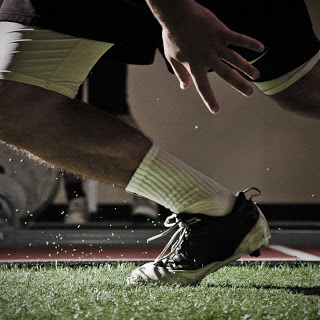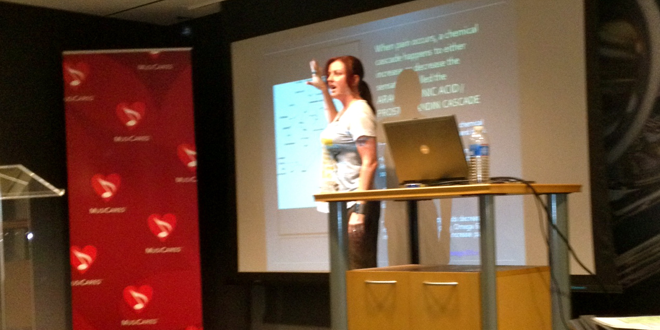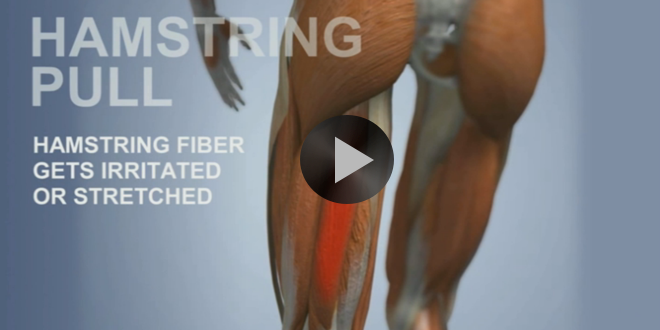By: ATLX Expert Dr. Rob Ziltzer
 Losing weight while training to compete at a high level can present some special challenges. It is easy to get lulled into thinking that you’ll lose weight through exercise alone. This is rarely the case. While putting in many hours of exercise, you might think you can eat whatever you want. In the process, you may actually consume more calories than you burn through exercise.
Losing weight while training to compete at a high level can present some special challenges. It is easy to get lulled into thinking that you’ll lose weight through exercise alone. This is rarely the case. While putting in many hours of exercise, you might think you can eat whatever you want. In the process, you may actually consume more calories than you burn through exercise.
Consider the National Weight Control Registry, a landmark study that showed us how most successful weight losers attained their weight loss. These masters of weight loss, who lost at least 30 lbs and kept it off for a year, generally lost their weight through diet or diet and exercise. Only 2% of the group lost weight through exercise alone.
Why this surprising statistic? As it turns out, fat is a very efficient way to carry energy. You have to burn 3500 calories to lose just 1 lb of fat. We run our cars on oil (a fat), not hay! So if you want to lose 3 lb per week, you would have to run over 100 miles (while not increasing your food intake-good luck with that)! You can eat a cookie in 3 seconds, but you would have to exercise for 40 minutes to burn off that cookie. On the other hand, if you increase your exercise while also decreasing your food intake, losing weight is a manageable proposition.
In my experience of working with overweight pro athletes, I often encounter many dilemmas. My NFL players are often in a quandary. They want to lose weight, but sometimes the team wants them to gain weight. This disparity more often occurs in linemen. My patient wants to drop pounds, but the team wants a more solid base to defend the QB. In a sport where size matters, every pound counts!
First we evaluate for diabetes, fatty liver, high blood pressure and sleep apnea. These are common in obese players. After talking with the players to see what has lead to their weight gain and doing a thorough physical exam, we establish goals and a plan to get there.
Many of my players like using high protein shakes to deliver the complete nutrition. I like OPTIFAST HP, a product that excels in complete nutrition and delivers 26 gm protein. Because they are so filling, are low in sugar and high in protein, the weight sheds quite quickly. Meal replacements keep the players out of fast food restaurants, which are typically high in sugar, fat, and calories. The stressful life of a pro-athlete often causes them to grab and go.
Once we have a plan that everyone is comfortable with, we follow them weekly to evaluate and tweak the plan as needed. Ensuring at least 7 hours of sleep, eating after workouts, and reducing the size of late meals promotes loss of belly fat.
Once the athlete has achieved goal weight, we continue to see the patient regularly to prevent regain. Having a maintenance plan is just as important as the weight loss plan.
Ultimately, the player will be successful if they set their own goal. Sometimes, this can lead to fines or reduced playing time if they don’t make their weight (both too high and too low). It works best when player and team are in line. I try to stress performance rather than just relying on size. It takes longer to build muscle than to gain fat, so I try to moderate expectations on speed.
Obesity is a complex set of diseases. For each person, the reason for weight gain is different. Understanding what factors are causing you to gain weight can go a long way to helping solve your problem. Look back at what triggered you to pack on the belly fat. Was there a change in your life, such as new job, move to a new town, a relationship change that caused you to eat differently? Did you start turning to food or alcohol to deal with stress, anxiety, boredom or depression? Did you start staying up late or watching TV late at night? Did you start snacking at night, especially on sweets? All of these life changes need to be managed in order to be successful.
Ideally, you’ll want to lose weight before you have to compete at a high level. Using the off-season is the ideal time to do this, since you won’t have to worry about performance. Shedding pounds while having to be at your peak performance can be like walking a tight rope. Finding the right balance between having adequate stores of energy to compete at your best, while creating a calorie deficit can be a challenge.
Strategies for losing weight will depend on the sport in which you are competing. If your sport is endurance, such as triathlons, biking, running, swimming, soccer, hockey or basketball, you can rely more on fat stores for much of your energy needs. It takes a couple of weeks to adapt to burning mainly your own fat rather than sugar. Reducing your carbohydrates (starches and sugars) will cause you to use up your own liver glycogen. Once glycogen stores are gone, you’ll need to eat plenty of protein. It is from protein that you can make the sugar you need. Training increases the amount of fat you burn, and reduces the amount of carbohydrates you burn. So over time, you can lose weight and improve endurance, since you’ll never run out of fat stores.
High-intensity, short-duration sports rely more on sugar stores to provide energy. Sugar releases energy quickly, and results in the strength you’ll need for short bursts, such is in football, baseball, and weight lifting. Losing weight during the season can be even more difficult, since depleting glycogen, the very source of sugar for energy, is required for significant weight loss.
Here are some nutrition guidelines for weight loss:
1. Provide lots of protein, at least 0.5-0.8 gram/lb. In other words, a 180lb athlete should get at between 90 and 145 grams of protein daily to build muscle and maintain muscle mass. The best sources of protein are egg whites, white meat chicken or turkey, fish, Greek yogurt, lean beef and low-fat cottage cheese. I also like whey protein shakes. Soy based proteins have less essential amino acids, so avoid these.
2. Eat small frequent meals to keep your metabolism fueled, and give your body the building blocks.
3. Limit fat intake to 20% of total calories, since this is this is the easiest way to cut calories. You’ll get the fat you need from the lean proteins above. You don’t need to add fat.
4. Cut the carbs between meals, and when you do eat carbs, get them just prior, during and just after exercise. That will ensure they get used or stored as glycogen rather than fat. While the recommendations call for nearly 500 grams of carbs for 180 lb athlete (2.7 gm/lb), experiment with your performance at lower levels to reduce weight. You may get by with 200 grams of carbs daily.
5. Drink lots of fluids. Even 2% dehydration reduces blood flow to muscles and will compromise performance. Sport drinks with sugar can be used when you are exercising for more than 1 hour. Otherwise stick to drinks with 10 calories or less per 8oz.
6. For recovery, drink a protein shake within 30 minutes of completing your workout. This will enhance muscle building. Otherwise, you’ll lose precious muscle mass you’ve worked hard to build.
7. Sleep at least 7 hours. This is critical for weight loss.
When it comes to keeping off the weight, exercise is the most important component. Successful weight managers are highly active, and a sudden drop in activity (such as the end of baseball, basketball or football season) is likely to lead to rapid increase in the pounds, so have a plan to stay active during off-season.
See:
 ATLX The only sports entertainment television and digital media network fully devoted to everyday athletes, athletic lifestyle and athletic culture.
ATLX The only sports entertainment television and digital media network fully devoted to everyday athletes, athletic lifestyle and athletic culture.




